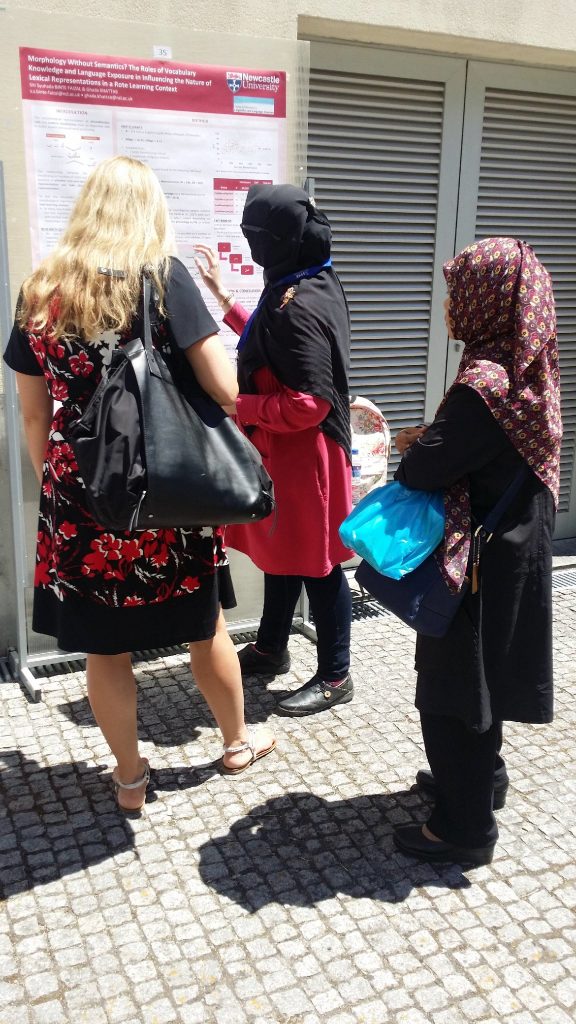A task that is routinely used by different clinicians (speech & language therapists, psychologists, neurologists) to evaluate the ability of adults with aphasia (the language deficit often associated with stroke) to remember spoken information for a brief period of time is the so-called word-span task. Lists of words that become progressively longer from one list to another are read out to a person. The person has to repeat each list immediately in the same order. Word-span provides clinicians with an insight as to whether short-term memory for language is compromised. Healthy people who do not have aphasia show variable performance in word-span. Demographic factors (age, gender and level of education) have been reported to influence performance on word-span, either favourably or unfavourably. For example, younger adults perform better on word-span than older adults. Also, older adults who are more educated perform better than their less educated peers.
When using word-span clinically to assess individuals, based on knowledge drawn from healthy individuals, some authors suggest that it is advisable to adjust word-span scores for age and/or education. However, very little is known whether the demographic characteristics of people with aphasia (such as age, gender, education) influence performance on word-span in relation to the language abilities they have as a result of their aphasia.
The present retrospective analyses of data from the Aphasia Bank (a shared database of interactions for the study of aphasia), had two aims:
- To understand the effects of demographics and language ability (as measured by a standard aphasia test) on word-span.
- To understand in more detail whether demographics, and word-span influence particular language abilities such as naming, repetition, spontaneous speech, spoken understanding.
Demographics, language ability (the Western Aphasia Battery, a standard aphasia test) and word-span data from the Aphasia Bank (212 participants) were analysed using regressions. Demographic characteristics were age, education, gender, time-post onset. Time post-onset refers to the length of time since the person had a stroke and has lived with aphasia.
The findings showed that only age and language ability (i.e., performance on the Western Aphasia Battery) predicted performance. Education, gender and time post-onset did not. Older participants performed worse, and participants with less severe aphasia performed better. Importantly, language ability exerted a much greater effect than age. These findings suggest that the effect of brain damage (reflected in language ability) attenuates the role of demographic variables on word-span. Age did not influence scores in naming, repetition and spontaneous speech but did exert a small influence on spoken understanding.
In summary, overall, in chronic aphasia age does not influence language ability, except for a small effect on spoken understanding of language. Education and time post-onset did not affect any of the language measures. There were small effects of gender on spontaneous speech and spoken understanding. Word-span had a prominent influence in all linguistic abilities (but most notably in naming and repetition). This might partially reflect the fact that word-span requires verbal production, but it is in line with previous studies that did not take into account demographic factors. Clinically, the findings suggest that it is more important to adjust for age than education when using word-span.
The present study was carried out in collaboration with Gayle DeDe (Temple University, USA). It was presented at the 54th Academy of Aphasia meeting in Llandudno. We would like to thank ECLS for the financial support to present this study. The authors are greatful for the support of Prof Brian MacWhinney for giving us permission to use Aphasia Bank for this project.
Written by Dr Christos Salis, Lecturer in Speech and Language Sciences









